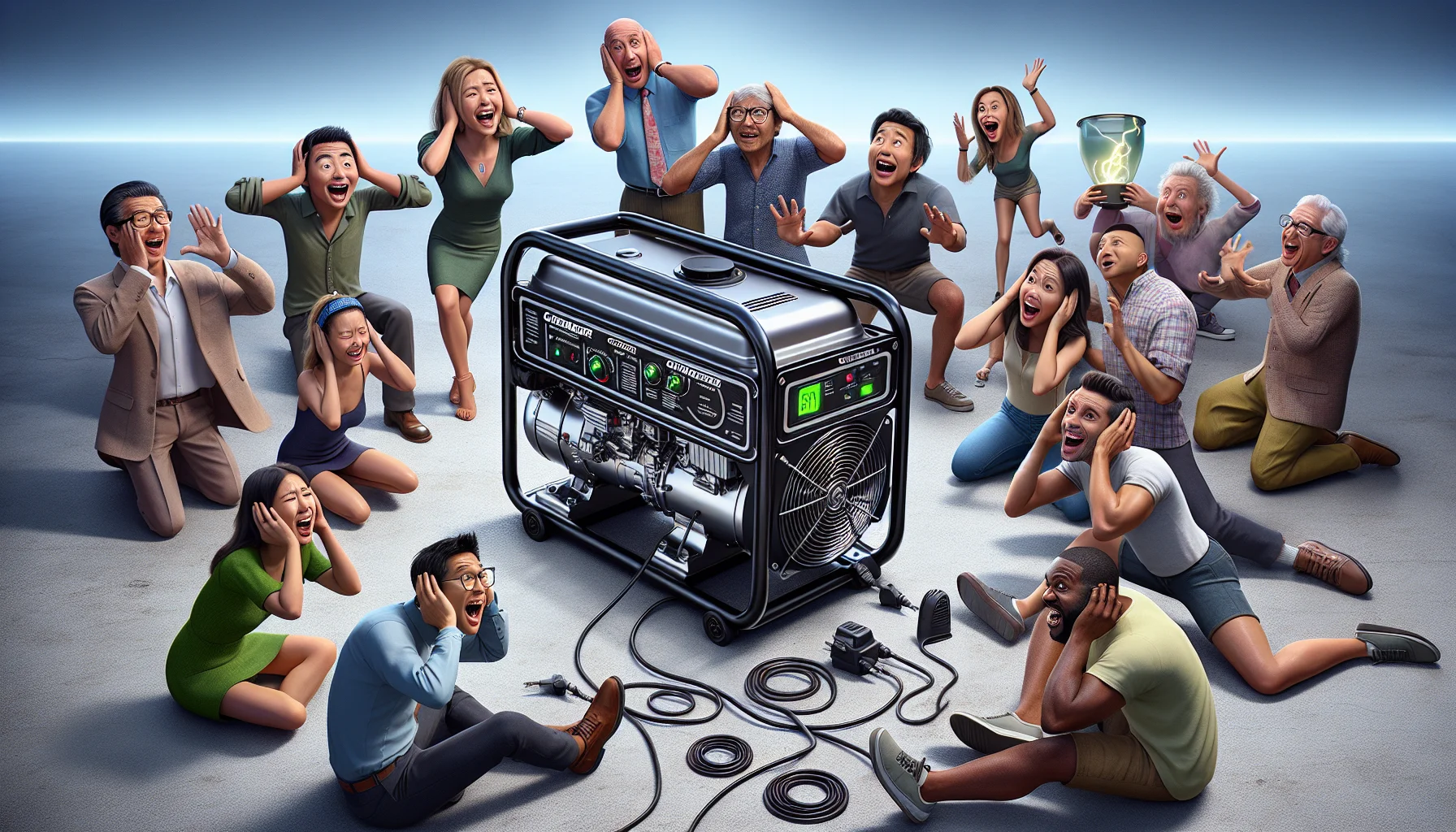Quietest propane generator Quiz
Test Your Knowledge
Question of
The Quietest Propane Generators for Peaceful Power
Having a quiet generator is essential for maintaining peace and tranquility in both residential settings and outdoor activities. Whether you're powering essential appliances during a power outage at home or supplying energy for a camping trip, a low-noise propane generator ensures that you can enjoy the convenience of electricity without the disruptive roar often associated with power generation. Quiet generators are especially valuable in densely populated neighborhoods or serene natural environments, where the sound of a traditional generator could disturb the peace and comfort of those nearby.
Why Choose Propane Generators?
Propane generators are an excellent choice for a variety of reasons, notably their environmental benefits and efficiency. Propane is known for burning cleaner than many other fuels, producing fewer greenhouse gases and making it a more environmentally friendly option. This means that choosing a propane generator can help reduce your carbon footprint. Additionally, propane is highly efficient, offering a high energy output relative to its volume, which can lead to cost savings in the long run. Its efficiency and clean-burning nature make propane generators a reliable and sustainable choice for those looking to balance power needs with environmental concerns.
Top Features of the Quietest Propane Generators
- Decibel Levels: Look for generators that operate at lower decibel levels to ensure minimal noise pollution.
- Fuel Efficiency: High fuel efficiency means the generator can run longer on less propane, saving costs and resources.
- Power Output: Ensure the generator provides sufficient power for your needs without sacrificing quiet operation.
- Portability: Lightweight and compact designs make the generator easier to move and store.
- Eco-Friendly: Models that produce fewer emissions are better for the environment and can often run quieter.
- Reliability: Choose generators known for their durability and minimal maintenance requirements.
- Advanced Features: Look for generators with inverter technology for cleaner power and quieter operation.
5 Best Quietest Propane Generators on the Market
| Model Name | Noise Level (dB) | Power Output (Watts) | Runtime |
|---|---|---|---|
| Yamaha EF2000iSv2 | 51.5 | 1600 | 10.5 hrs at 25% load |
| Honda EU2200i | 48 | 1800 | 8.1 hrs at 25% load |
| Generac GP2200i | 50 | 1700 | 10.75 hrs at 25% load |
| Westinghouse iGen2200 | 52 | 1800 | 12 hrs at 25% load |
| Champion 100263 | 53 | 3400 | 7.5 hrs at 25% load |
How to Maintain Your Propane Generator for Optimal Quietness
Maintaining your propane generator for optimal quietness involves regular checks and routine maintenance. Firstly, ensure the generator is placed on a stable, flat surface to minimize vibrations. Regularly check and replace the air filter to prevent the engine from working harder than necessary, which can increase noise levels. Use a soundproof enclosure or install sound-deflecting panels around the generator to reduce noise pollution. Lubricate moving parts frequently to prevent friction and noise. Additionally, inspect the exhaust system for any leaks or damage as this can significantly increase noise. Finally, conduct periodic maintenance checks as recommended by the manufacturer to ensure all parts are in good working condition, which helps in maintaining the generator's efficiency and quiet operation over time.
Environmental Impact of Propane Generators
Propane generators are often considered a more environmentally friendly option compared to diesel and gasoline generators. This is primarily because propane, a type of liquefied petroleum gas, burns cleaner than other fossil fuels. It emits significantly fewer pollutants such as carbon monoxide, particulate matter, and nitrogen oxides, which contribute to air pollution and can harm human health. Additionally, propane generators typically produce less noise pollution, making them a more sustainable choice for both urban and rural settings. However, while propane does have a lower environmental impact than many alternatives, it is still a non-renewable resource. Thus, while it represents a step towards cleaner energy, it is not a completely sustainable solution in the long term compared to renewable energy sources.
Conclusion: The Future of Quiet Power Generation
The adoption of the quietest propane generators marks a significant step towards sustainable, efficient, and unobtrusive power generation. These units not only ensure a reliable source of energy but also prioritize environmental friendliness and operational efficiency. By minimizing noise pollution, they offer a solution that is both considerate of the community and conducive to maintaining peaceful environments. The future of power generation lies in technologies that can deliver performance without sacrificing the quality of life, making quiet propane generators an ideal choice for those looking to balance power needs with environmental and social responsibility.












